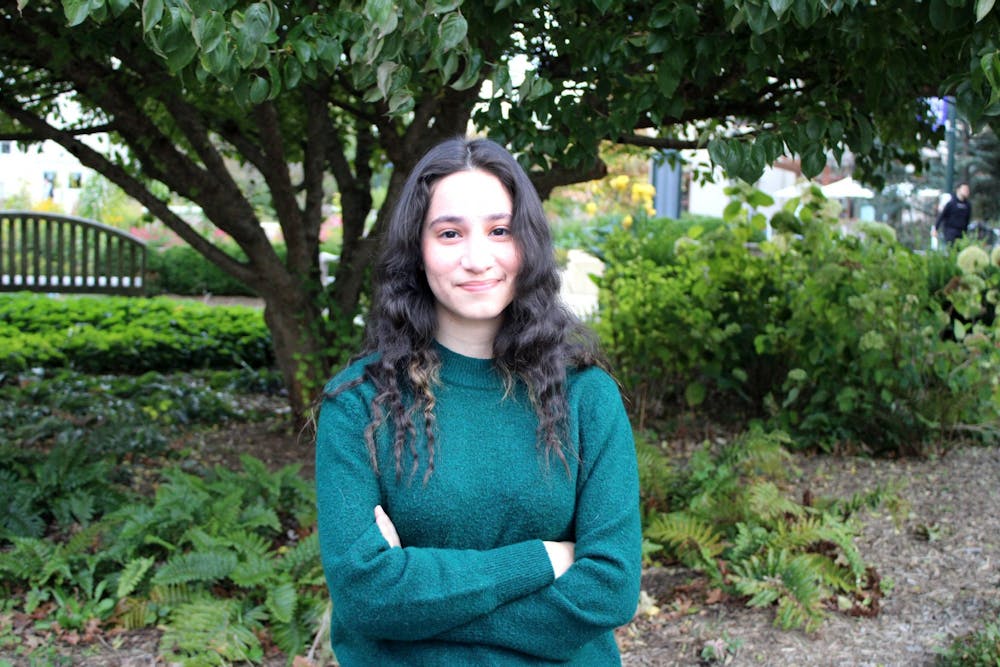As a resident of American University’s dorm halls, I have noticed the University’s neglect of student facilities. Per the AU’s requirement for freshmen and sophomores, I am also on a meal block plan. Throughout my time at American, it has become clear that Housing and Residence Life not only turns a blind eye but enables and neglects basic student needs in both housing and dining, curbing responsibility and worsening existing insecurity.
A recent health inspection in the Mary Graydon Center conducted by the D.C. Department of Health brings this issue to light. Reviewed on Sept. 21, the dining facilities in MGC, which account for most of the available food on campus, fell into the moderate risk category. Some of the health violations include improperly labeled food, mold on the ice maker and a rusty can opener. Students with allergies, dietary restrictions and religious restrictions are further alienated by these issues, as their already limited options have now been identified as unsafe. This contributes to existing issues of food insecurity at AU, as at-risk students’ options are effectively eliminated. The problem is exacerbated with fewer businesses accepting EagleBucks in Tenleytown per the contract cancellations and unopened dining venues in MGC, which despite not being open, are still advertised in emails.
Students should be able to trust that food they eat on campus is safe, especially since Housing and Residence Life is contractually obligated to provide “reasonable efforts” to maintain sanitation, as described in section seven of the HRL license agreement. I would argue that mold and rust-free conditions qualify as reasonable efforts.
Additionally, AU’s freshman dining plan costs $5,306 for the full year, which is 17.9 percent higher than the national average of $4,500. For a 17.9 percent price increase, students should be getting an above-average dining experience. These increased prices exacterbate food insecurity for low-income students, as they are required to spend money on food they cannot safely eat. The University is effectively requiring undergraduates to enroll in unsafe, high-price meal plans while taking on minimal liability for limited services, as seen in section six of the HRL agreement.
Housing only exacerbates these issues of inequality as the more affordable dorms have sanitation and repairment issues compared to those of higher prices. McDowell Hall, for instance, was reported to have mold in student rooms last year. Students living in these conditions spoke of “illness and difficulty breathing,” while administration denied allegations and neglected to inform students of observed water leaks. This year, Letts Hall had reports of fleas and collapsing bathroom ceilings. East Campus dorms, however, have had little to no reported health issues and were recently renovated. The cost difference between a double in McDowell and a double on East Campus is $2,069 per semester. It seems that the University upholds its standard of “clean, safe, and sanitary condition(s)” on a monetary basis, as opposed to its obligation to students.
The 2Fix Customer Response Center typically manages these housing inquiries, along with inquiries from the rest of campus, with an average of 50,000 work requests annually. 2Fix only employs five maintenance coordinators to monitor and resolve these requests. On top of creating monetary boundaries for safety, the University appears to be grossly understaffed in resolving an alarming amount of student requests, further contributing to this neglect.
In forcing students to sign up for inadequate and unreliable plans and creating financial barriers for basic housing safety and health, AU places already at-risk students in more dire circumstances. In creating these situations, the University loses students’ trust as we question its use of undergraduate money. The community must recognize that these issues go beyond a TDR complaint and catching a cold. By challenging the University’s maintenance of its own policies, we can make greater strides in change.
Rebeca Samano is a sophomore in the School of Public Affairs and a staff columnist for The Eagle.





